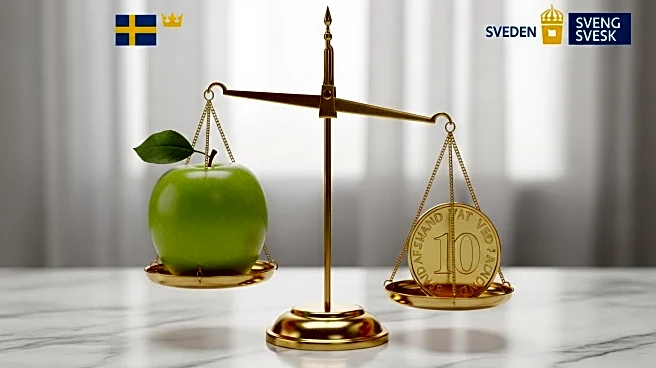What is the story about?
What's Happening?
The Swedish government has announced a significant reduction in the value-added tax (VAT) on food products as part of its 2026 budget plan. The VAT will be halved from 12% to 6%, effective from April 1, 2026, until December 31, 2027. This measure aims to alleviate the financial burden on Swedish families affected by inflation, which has been driven by high energy prices, environmental issues, and limited competition in the grocery sector. The government plans to establish a 'food price commission' to monitor grocery prices and encourage competition by guiding municipalities to promote the establishment of more grocery stores.
Why It's Important?
This VAT reduction is expected to provide financial relief to Swedish households, particularly benefiting those with lower incomes. By decreasing food prices, the government hopes to strengthen the purchasing power of consumers and support local food production. The initiative is seen as a response to the country's inflation challenges, which peaked in mid-2022. The Swedish Food Federation has welcomed the move, noting that it could help reduce the price gap between domestic and imported food products, although production costs are expected to continue rising.
What's Next?
The Swedish government will implement the VAT reduction in April 2026, with ongoing monitoring by the food price commission. Authorities will work to simplify measures in the grocery sector and promote competition. The impact of these changes on inflation and food prices will be closely observed, with potential adjustments based on economic conditions and consumer feedback.
Beyond the Headlines
The VAT reduction reflects broader economic strategies to address inflation and support consumer spending. It highlights the government's commitment to balancing economic growth with social welfare, potentially influencing similar policies in other countries facing inflationary pressures.
















